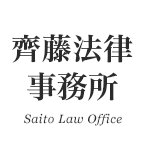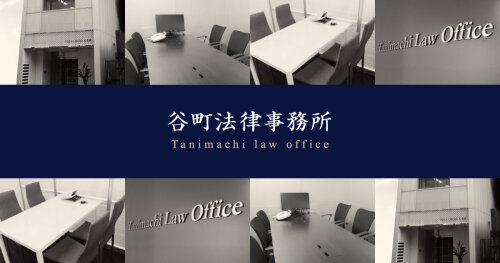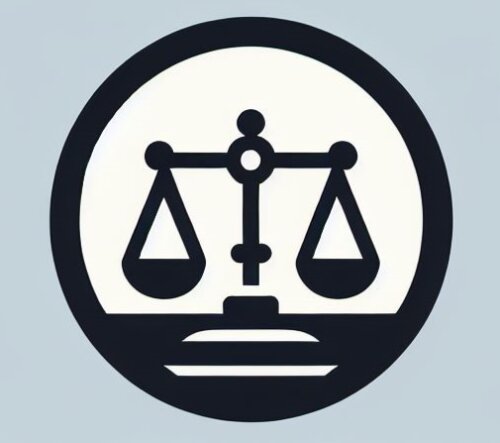Best Transportation Lawyers in Japan
Share your needs with us, get contacted by law firms.
Free. Takes 2 min.
Or refine your search by selecting a city:
List of the best lawyers in Japan
About Transportation Law in Japan:
Transportation in Japan is heavily regulated to ensure safety, efficiency, and environmental sustainability. This includes laws governing road traffic, public transportation, aviation, and maritime activities. Whether you are a driver, a commuter, or a business involved in transportation, it is essential to understand the legal framework to operate within the law.
Why You May Need a Lawyer:
There are various situations where you may require legal assistance in transportation matters, such as traffic accidents, licensing issues, disputes with transportation companies, or compliance with regulations. A lawyer specialized in transportation law can provide guidance, representation, and support to navigate complex legal issues effectively.
Local Laws Overview:
In Japan, transportation laws cover a wide range of areas, including road traffic regulations, vehicle standards, licensing requirements, public transport operations, aviation safety, and maritime rules. It is crucial to be aware of these laws to avoid penalties, ensure compliance, and protect your rights in case of legal disputes.
Frequently Asked Questions:
1. What should I do if I get into a traffic accident in Japan?
After ensuring everyone's safety, exchange contact and insurance information, notify the police, and seek medical attention if needed. It is advisable to consult with a lawyer to understand your rights and responsibilities.
2. How can I obtain a driver's license in Japan as a foreigner?
Foreigners can apply for a Japanese driver's license by converting their foreign license or taking a driving test. The process may vary depending on your country of origin. Consulting with a lawyer can help clarify the requirements.
3. Are there specific regulations for public transportation in Japan?
Yes, public transportation services in Japan are subject to regulations concerning safety standards, fare structures, and service quality. If you encounter issues with a transportation provider, seeking legal advice can help protect your rights as a passenger.
4. What are the legal requirements for operating a commercial vehicle in Japan?
Commercial vehicles must meet specific standards for size, weight, maintenance, and driver qualifications. Understanding these requirements and complying with them is essential to avoid legal complications. A lawyer can assist in ensuring regulatory compliance.
5. Can I challenge a traffic violation ticket in Japan?
Yes, you have the right to contest a traffic violation ticket through a legal process. It is advisable to seek legal advice to assess the merits of your case and determine the best course of action to challenge the ticket.
6. What are the laws regarding drunk driving in Japan?
Japan has strict laws against drunk driving, with severe penalties for offenders. It is crucial to understand the legal blood alcohol limits, testing procedures, and consequences of driving under the influence. Consulting with a lawyer can help protect your rights in such cases.
7. How can I resolve disputes with a transportation company in Japan?
If you have a dispute with a transportation company regarding service quality, fees, or damages, you may consider mediation, arbitration, or legal action to reach a resolution. A lawyer can advise you on the appropriate course of action based on your situation.
8. What safety regulations apply to air travel in Japan?
Aviation safety in Japan is governed by strict regulations to ensure the safety of passengers, crew, and aircraft. Familiarizing yourself with these regulations and seeking legal advice when necessary can help address any concerns related to air travel safety.
9. Are there environmental regulations for maritime activities in Japan?
Yes, Japan has environmental laws to protect its coastal waters and marine ecosystems from pollution and other harmful activities. Compliance with these regulations is essential for maritime operators, and legal advice can help navigate environmental compliance requirements.
10. How can I seek compensation for transportation-related injuries in Japan?
If you have sustained injuries in a transportation-related incident, such as a traffic accident or public transportation mishap, you may be entitled to compensation for medical expenses, lost wages, and pain and suffering. Consulting with a lawyer specializing in personal injury claims can help you pursue the compensation you deserve.
Additional Resources:
For more information on transportation laws and regulations in Japan, you can refer to the Ministry of Land, Infrastructure, Transport, and Tourism (MLIT) website, Japan Transport Safety Board (JTSB), Japan International Transport Institute, or seek guidance from legal professionals specializing in transportation law.
Next Steps:
If you require legal assistance in transportation matters in Japan, it is advisable to contact a reputable law firm with experience in transportation law. A lawyer can assess your situation, provide tailored advice, and represent your interests effectively in legal proceedings. Taking proactive steps to address transportation-related legal issues can help you navigate challenges and protect your rights in compliance with Japanese laws.
Lawzana helps you find the best lawyers and law firms in Japan through a curated and pre-screened list of qualified legal professionals. Our platform offers rankings and detailed profiles of attorneys and law firms, allowing you to compare based on practice areas, including Transportation, experience, and client feedback.
Each profile includes a description of the firm's areas of practice, client reviews, team members and partners, year of establishment, spoken languages, office locations, contact information, social media presence, and any published articles or resources. Most firms on our platform speak English and are experienced in both local and international legal matters.
Get a quote from top-rated law firms in Japan — quickly, securely, and without unnecessary hassle.
Disclaimer:
The information provided on this page is for general informational purposes only and does not constitute legal advice. While we strive to ensure the accuracy and relevance of the content, legal information may change over time, and interpretations of the law can vary. You should always consult with a qualified legal professional for advice specific to your situation.
We disclaim all liability for actions taken or not taken based on the content of this page. If you believe any information is incorrect or outdated, please contact us, and we will review and update it where appropriate.
Browse transportation law firms by city in Japan
Refine your search by selecting a city.















